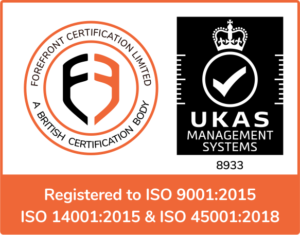Contact Us
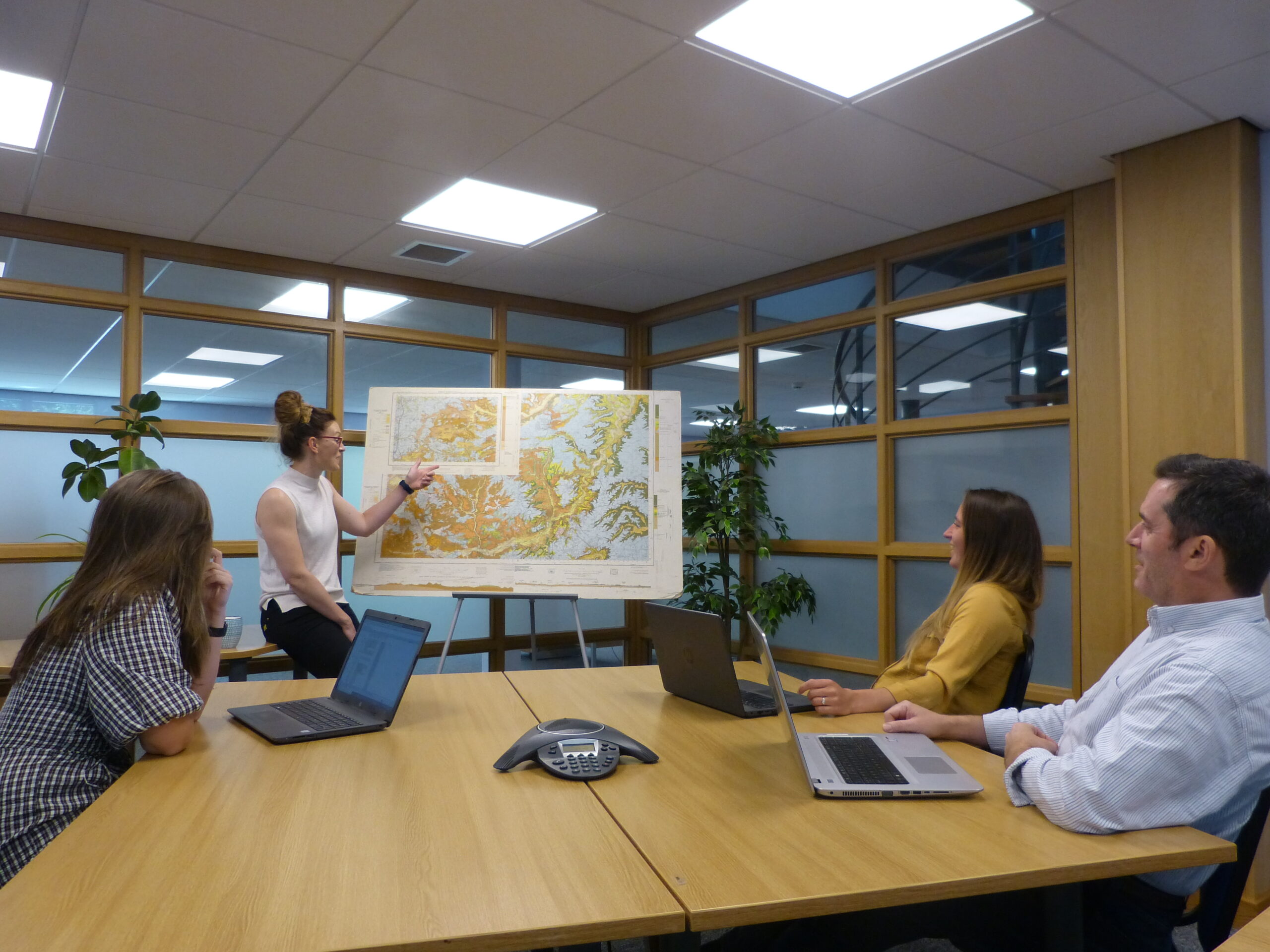
Why Work Experience Matters – And Why We Do It Differently at Soiltechnics
Work experience
When I did my work experience, I ended up at a local nursery school. It was close by, and to be honest, there weren’t many other options available. I went in with an open mind, but by the end of the week I’d learned something important – mainly that childcare wasn’t for me.
And that’s not a bad thing.
Work experience doesn’t always have to confirm what you do want to do. Sometimes, it’s just as useful to figure out what isn’t the right path. But what stood out the most to me was how limited the options were, and how little support there was in making the experience feel connected to real career goals. That stuck with me – and it’s part of the reason why, at Soiltechnics, we take a completely different approach.
Making Work Experience Count
At Soiltechnics, we know that one week can make a big difference – not just for students, but for the future of our industry. That’s why we make the effort to ensure every placement we offer is hands-on, engaging, and actually useful. Whether someone’s into science, engineering, the environment and sustainability, or just figuring things out, we want their time with us to help them learn something real – not just make tea or watch from the sidelines.
We give students a chance to:
- Get involved in real projects, with meaningful tasks.
- Ask questions and learn from experienced professionals.
- See what a future in this field could really look like.
- Explore whether this type of work and working environment fits their interests and skills, and just as importantly, if it does not.
Why It Matters to Us
We believe that the best way to build a strong, skilled workforce for the future is to start early – by showing young people the wide range of opportunities out there. That means offering more than a place to spend five days. It means giving them insight, purpose, and support.
Because we’ve been there, we know what it’s like to do work experience that doesn’t connect, that feels like a box-ticking exercise. And we also know how powerful it can be when someone takes the time to make it matter.
Let’s Do Better
Whether students walk away excited about a future in ground engineering or decide it’s not for them – we want their experience at Soiltechnics to feel worthwhile. At the very least, we hope it helps them take a step closer to figuring out what is right for them.
Because that’s what good work experience is all about.
So if you are interested in learning more, or would like more information about how work experience opportunities, get in touch with us today.
Don’t just take my word for it
Here’s what our most recent work experience student – an A-Level Geography student from Wootton Park School – had to say about her week with our Ground Investigation team:
In March, Soiltechnics offered me a weeklong work placement— a valuable and fulfilling experience.
What I had initially deemed as nerve-wracking— entering an office surrounded by those with expertise far above my own, in a sector I had never encountered before — turned out to be extremely insightful as I interacted with a cluster of people, from a senior geo-environmental engineer to a principal geotechnical engineer, understanding the mechanics of the business.
The geotechnical consulting company ‘bores’ into the analysis of soil and ground-related risk management— a vocation which can be split into 3 main divisions: desk studies, ground investigations, and ‘Geotech’. Throughout the week, I rotated around these three sections.
‘Desk studies’ refer to preliminary research done on a proposed site before any work takes place, creating a profile on a proposed site. On the first day, I was given materials to create a desk study on, guided seamlessly by professionals. Here, my ability to analyse and selectively choose relevant information strengthened. ‘Ground investigations’ encompass all activities taken to understand the attributes of a site. It was also the area I enjoyed the most. Being given a series of logged soils to investigate, I was mentored by the team, determining the characteristics and subsequent classification of a material. The ‘Geotech’ subsection utilises engineering knowledge of earth materials to determine appropriate physical and mechanical properties of the ground. In this subsection, I learnt data analysis and attempted to construct graphs accessible to a client.
Throughout the entirety of the week, the people around me were easy-going, friendly and always willing to help whenever I was stuck (which was quite often).
As someone who didn’t have a strong grasp of the geo-technical sphere originally, the company did a remarkable job of introducing the industry to me.
Thank you Soiltechnics for this opportunity.
Since starting my placement year with Soiltechnics training to be a geo-environmental engineer, I have had the opportunity to work alongside the skilled professionals who form this company and the chance to dive into a variety of exciting projects, gaining invaluable hands-on experience in the process. My time at Soiltechnics has certainly been memorable – from learning how to operate new software tools such as QGIS and writing technical reports in the office, to traveling around the UK, logging to British standards and most likely getting soaked completing fieldwork.
From Environmental Science to Geo-Environmental Practice
As an Environmental Science student at Lancaster University, my exposure to geo-environmental engineering was very limited when I first started. This is why one of the highlights of my placement was being constantly exposed to a multitude of different jobs and being able to get well and truly stuck in exploring information, techniques and problems I had never encountered or interpreted before. For example, I learnt to consider the historical impact of mining, landfills and the potential consequences from various industrial and commercial activities on a site.
I was also taught how to complete foundation and chemical assessments and based on such, recommend suitable strategies and solutions clients could utilise.
I have thoroughly enjoyed the fieldwork aspect included in my role. I have joined colleagues on a variety of jobs and witnessed an array of ground investigation techniques that I would never have encountered during my degree.



A transformative placement year of learning
Reflecting on this year, I can say with confidence my placement has been an exceptionally valuable experiences and one of the highlights of my academic journey. With the guidance of colleagues and the fantastic training courses I have been able to attend, I have deepened my understanding of geo-environmental engineering and gained knowledge and skills I will take into my future career.
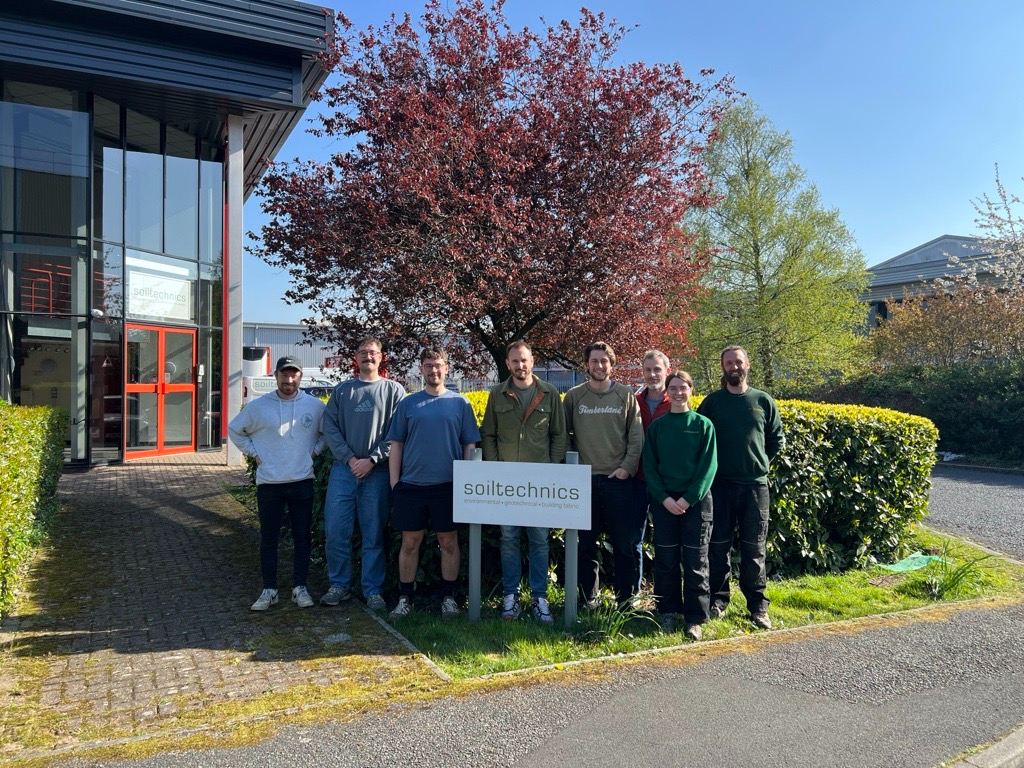
Basement developments are becoming increasingly common in London due to the lack of available space.
Sometimes, the development is a simple expansion of an existing partial basement beneath the footprint of the property. In other cases, the development is larger and can be several storeys into the ground.
There is a natural concern with the number of basement developments occurring and the potential impacts these have on the surrounding infrastructure and environment.
This is ever more evident to the public following a number of high profile building collapses during ‘basement development’ works.
Any planning application to construct a basement or expand an existing basement will need to demonstrate that the scheme will not adversely impact the surroundings.
What Is A Basement Impact Assessment?
In short, a Basement Impact Assessment (commonly referred to as a BIA) is a technical report that considers the impact of a proposed basement on the site and surrounding area.
The report should be written by a professionally qualified Chartered Engineer (CEng) and/or Chartered Geologist (CGeol).
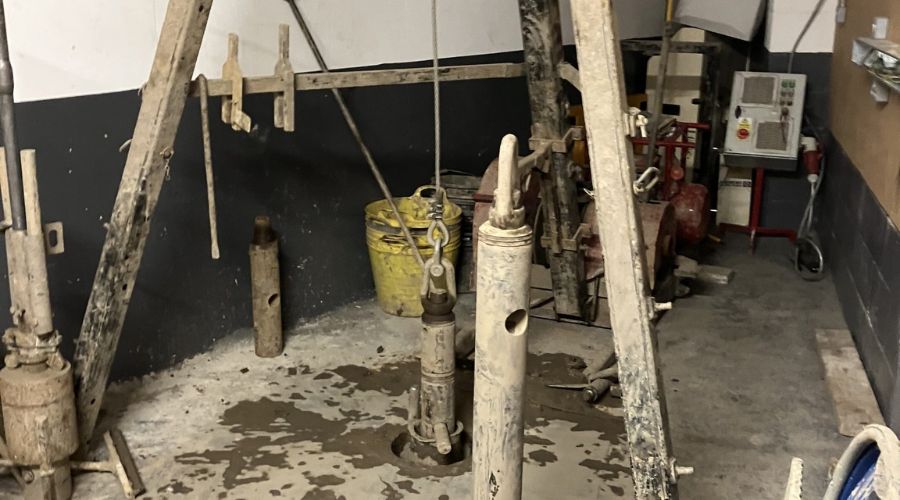
Where Are Basement Impact Assessments Required?
This depends, but generally, a Basement Impact Assessment is required when it’s been specified by the local planning authority.
London boroughs are notably stringent when it comes to basement development.
Soiltechnics has years of experience undertaking all stages of a Basement Impact Assessment on domestic and commercial basement projects throughout the city of London.
Get in touch with our team to learn more.
The Stages of a Basement Impact Assessment
The report will generally be structured into four stages. These stages include:
1. Screening
2. Scoping
3. Site investigation and study
4. Impact assessment
1. Screening
The screening stage involves a review of desk study information and identifies matters that require further investigation.
This will include items such as likely ground conditions, groundwater levels, and surface water flows, to name a few.
2. Scoping
Building upon the issues noted in the Screening stage, the impacts of those issues are identified in the scoping stage, alongside recommendations for mitigation measures.
3. Site Investigation & Study
This stage, if required, entails physical works at the site to confirm ground and groundwater conditions, and existing foundation depths.
This might include drilling boreholes to confirm ground conditions or excavating pits to confirm the existing foundation layout.
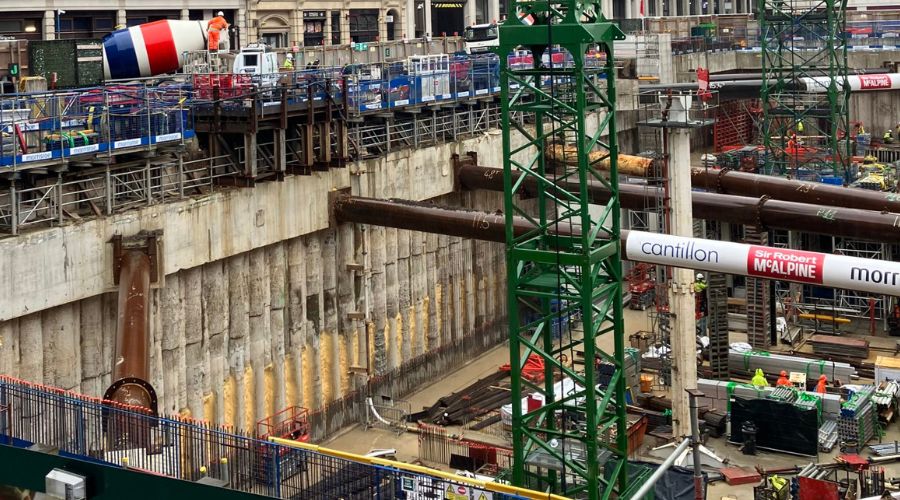
4. Impact Assessment
Detailed geotechnical modelling (Ground Movement Analysis) is undertaken to assess the impact on neighbouring properties.
This will include an assessment of the Burland Damage Category for the properties affected by the development.
The impact on local infrastructure will also be assessed and, if required, the imposed stress and strain on utilities.
How Can Soiltechnics Help With Your Basement Scheme?
Soiltechnics has a strong track record of supporting clients with planning applications.
Our in house professionals often form part of an integrated design team alongside structural engineers and drainage professionals, to name a few.
Contact our experienced team at +44(0) 1604 781877 or enquiries@soiltechnics.net today to find out how we can help and learn more about the services we provide.
In the construction industry, managing waste soil effectively is not just a regulatory requirement but also a significant opportunity to save costs, increase profitability, and contribute to environmental sustainability.
Effective soil management practices can offer construction companies a variety of advantages, both in terms of economics and environmental impact.
Here’s a closer look at how proper waste soil management can benefit both the environment and the economy:
Economic Benefits

Cost Savings
One of the primary advantages of effective soil management is the potential for significant cost savings. Construction projects often generate large amounts of waste soil, which can be costly to dispose of.
By reusing soil on-site or transferring surplus soil to other developments, companies can reduce the need for costly soil disposal or the purchase of new soil.
A well-crafted Materials Management Plan can help identify opportunities for soil reuse, further reducing costs.
This proactive approach helps companies optimise their resources and maximise project profitability. Additionally, reusing soil reduces the logistical costs associated with transporting new materials to the site, contributing to overall financial savings.
Avoiding Costs of Soil Disposal
Soil disposal can be expensive, especially when large volumes of waste soil accumulate. Many construction companies face steep charges for transporting and disposing of soil.
However, by managing waste soil effectively, businesses can avoid these high costs.
Reusing or redirecting soil for other purposes allows companies to save money and invest those funds in other critical areas of the project.
This also reduces the environmental impact of waste soil disposal, creating a more sustainable approach to construction.
Compliance and Avoidance of Penalties
Staying compliant with local waste management regulations is crucial for construction companies. Regulatory bodies, such as the Environment Agency (EA) and Her Majesty’s Revenue and Customs (HMRC), frequently audit construction sites to ensure proper waste disposal practices. Non-compliance can lead to hefty fines and penalties.
By adopting effective waste soil management practices, companies ensure they meet the legal requirements and avoid potential legal consequences.
Failure to comply can result in penalties, including landfill taxes. By following best practices, companies can minimise their exposure to fines and safeguard their financial interests.
Enhanced Reputation
In today’s environmentally-conscious market, companies that prioritise sustainability often enhance their reputation. Effective waste soil management demonstrates a commitment to responsible resource use and environmental stewardship.
Clients, stakeholders, and communities are increasingly choosing companies that adopt sustainable practices. This not only boosts a company’s standing but also opens up opportunities for new business.
Companies that demonstrate a proactive approach to environmental responsibility can attract more clients, gain a competitive advantage, and stand out in the marketplace.
Are you looking to improve your business’ sustainability practices and reduce costs? Contact us at Soiltechnics today to learn how we can help your company implement effective waste soil management solutions.
Environmental Benefits

Reduction in Landfill Use
Effective waste soil management helps reduce the volume of soil sent to landfills, conserving landfill space and minimising environmental impact.
Soil is a valuable resource, and diverting it from landfills ensures that it can be reused or recycled for other purposes.
This approach not only supports the conservation of land but also reduces the environmental burden caused by excessive waste.
By implementing a strategy to manage waste soil effectively, construction companies contribute to a reduction in landfill waste, thus promoting a more sustainable approach to construction practices.
Reducing the Impact of Landfills
Landfills are often seen as a necessary evil, but they pose a significant environmental threat. The more waste sent to landfills, the more pressure is put on our limited landfill space, as well as the increased environmental damage that comes from methane emissions.
By reducing the amount of waste soil sent to landfills, construction companies can minimise these environmental risks and help mitigate the overall impact on the planet.
Reduction in Greenhouse Gas Emissions
In addition to saving costs, effective waste soil management helps lower greenhouse gas emissions. The process of extracting, transporting, and processing new soil materials requires significant energy and contributes to the overall carbon footprint of a construction project.
By reusing soil or repurposing surplus material, the need for additional soil extraction and transportation is minimised.
This, in turn, reduces the amount of fuel consumed by transportation vehicles and decreases emissions of harmful gases that contribute to climate change.
By integrating sustainable soil management practices into construction projects, businesses can contribute to global efforts to reduce greenhouse gas emissions and minimise their environmental impact.
Minimising Soil Loss
Soil is a limited and increasingly valuable resource. The construction and agricultural industries both contribute to the depletion of this essential resource, which is vital for maintaining healthy ecosystems and supporting biodiversity.
By adopting sustainable soil management practices, construction companies can help preserve this resource for future generations. Shifting to a model of soil regeneration, rather than waste, can help ensure that soil is used efficiently and kept in circulation.
This transition is a key component of the circular economy, where materials are reused and waste is minimised, contributing to a more sustainable and environmentally responsible industry.
Moving Towards a Sustainable Future Through Effective Soil Management

Effective waste soil management in the construction industry presents a win-win scenario for both the environment and the economy.
By reducing landfill use, minimising the extraction of virgin soil, and cutting greenhouse gas emissions, construction companies can make meaningful contributions to environmental sustainability.
These environmental advantages, when combined with the economic benefits of cost savings, regulatory compliance, and enhanced business reputation, make effective soil management a strategic priority for any construction company.
The importance of proper soil management will only grow as regulatory pressures increase and environmental concerns continue to shape the construction industry.
By embracing these best practices, construction companies not only improve their sustainability efforts but also ensure their long-term profitability and success in a competitive marketplace.
How We Can Help
Contact us at enquiries@soiltechnics.net today to explore how our expert soil management solutions can help your business thrive while supporting environmental sustainability and driving cost-efficiency.
As the UK continues its drive toward net zero by 2050, renewable energy projects rapidly expand, with solar farms leading the way.
Effective ground investigation and geotechnical support cannot be overstated when developing solar PV farms, especially as they often require innovative foundations and specialised risk assessments.
Soiltechnics is a leader in this field, offering a range of services designed to support every stage of solar farm development, from permitting to final site testing and verification.

Key Geotechnical Services for Solar Farms
Soiltechnics provides a comprehensive suite of services tailored to meet the specific needs of solar PV projects, ensuring safe, cost-effective, and sustainable development. Here are some of the core services offered:
- Permit Application Assistance – Soiltechnics streamlines the permitting process, assisting with the complex regulatory landscape so solar farm projects can proceed without unnecessary delays.
- Phase 1 & 2 Geotechnical & Geoenvironmental Site Appraisals – Soiltechnics specialises in in-depth site investigations, offering both Phase 1 and Phase 2 site appraisals that consider environmental factors and geotechnical suitability for solar projects. These site appraisals ensure the safe and sustainable use of land, even on previously disturbed or reclaimed sites.
- Pile Load Testing – Accurate pile load testing is critical for determining optimal pile types, site-specific conditions, and load capacities. Soiltechnics’ experienced team conducts rigorous pile load testing for solar PV farms, including testing for tension, compression, and lateral forces, allowing for informed decision-making on foundation requirements.
Want to learn how Soiltechnics can support your solar project? Contact us today to discuss how our tailored services can help drive your project to success.
Specialised Assessments for Unique Site Requirements

Earthworks and Material Management: Supporting Sustainable Solar Projects
Sustainable development is central to renewable energy, and Soiltechnics supports this through efficient earthwork planning and materials management.
- Earthworks Specification & Verification – From initial design to final verification, Soiltechnics’ geotechnical team supports earthworks for access roads, foundation platforms, and more. This service ensures that solar farms are built on a strong foundation that aligns with environmental and structural requirements.
- Materials Management Plans (MMPs) – Efficient waste management is crucial to maintaining project sustainability and profitability. Soiltechnics’ expertise in materials management planning helps minimise waste and maximise resource reuse, ultimately benefiting the project’s bottom line.
Why Choose Soiltechnics for Your Solar Farm Project?
With a proven track record and industry expertise, Soiltechnics is well-equipped to deliver specialised geotechnical services for solar farms across the UK and Europe.
Their holistic approach – from preliminary site assessments to advanced pile testing and risk assessments – ensures each project is developed on a solid foundation, both literally and figuratively.

Ready to optimise your solar farm project with expert geotechnical support? Get in touch with Soiltechnics to explore how our customised solutions can enhance your solar farm’s success.
Whether you need foundational risk assessments, trenchless crossing design, or complete site appraisals, our team is here to help.
Maximise the efficiency, safety, and sustainability of your solar farm project with Soiltechnics, your trusted partner in renewable energy development.
We were delighted to host The Geological Society’s, Home Counties North Regional Group at our Walgrave office this week.
Soiltechnics’ own Dr Matt Hooper and Ian Dunkley delivered a fantastic lecture on ‘Northampton Ironstone: Geology, mining and legacy land’.
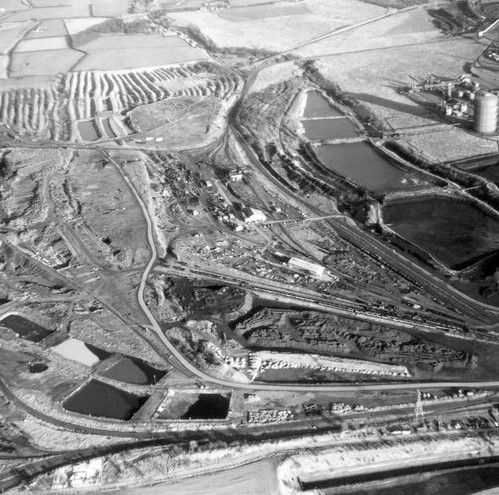
Northampton Sand Formation ironstone was deposited during the Middle Jurassic as an Oolidal Limestone on a shallow marine shelf at the northern edge of London-Brabant Massif.
It extends from North Oxfordshire to North Lincolnshire. The formation contains berthierine, siderite and pyrite minerals which have been extensively exploited since the mid-19th century as a significant source of iron ore.
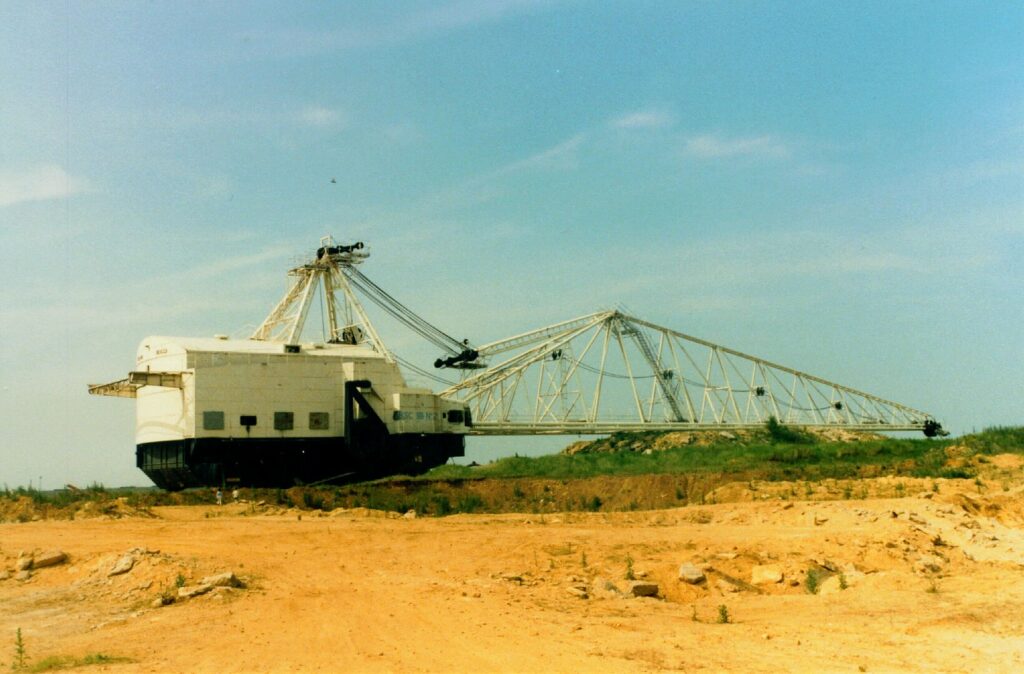
Exploitation was focused around the Corby, Kettering and Northampton areas and comprised a combination of underground mining and, more commonly, shallow mining using giant dragline machines.
This has left an extensive imprint on both the population demographic of local communities and an extensive legacy of geological, geotechnical and environmental risk that continues to be a challenge to the present day.
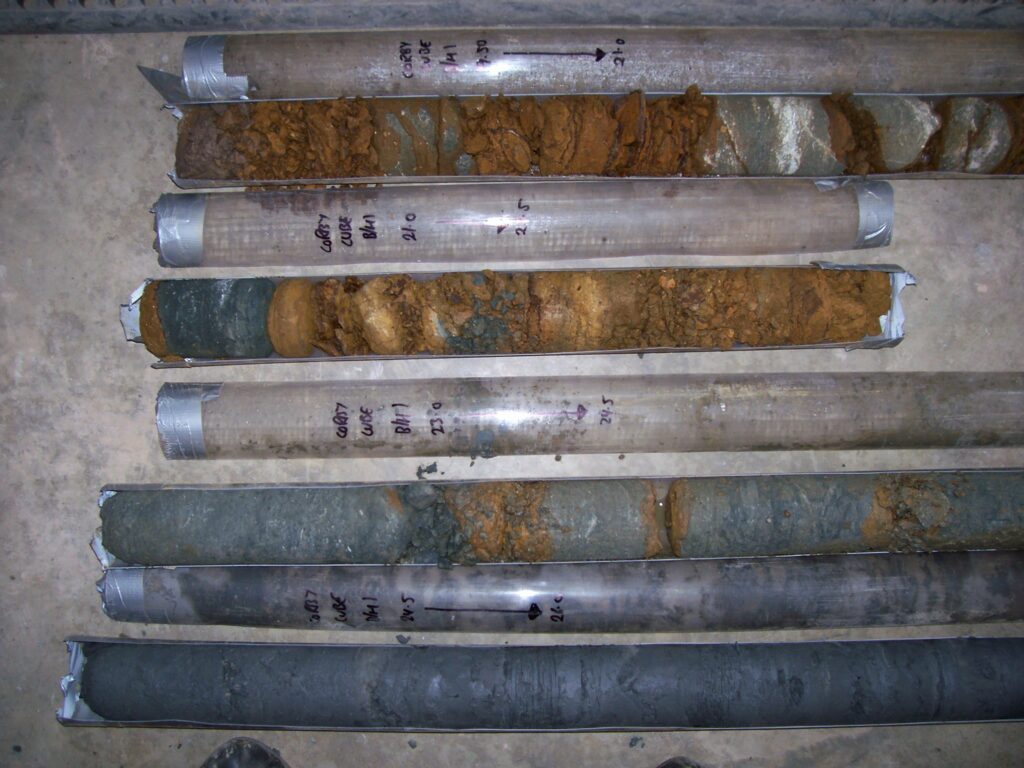
Matt and Ian explored the risks and led discussion on how to go about investigating and mitigating risk for existing and new developments.
Thanks to Matt, Ian and all involved with the HCNRG who continue to provide such engaging and accessible events across our region.
You can view and download the event PDF below:
AJ Retrofit Live this week delivered another impressive lineup of speakers and case studies. It was especially interesting to learn more about the design ethos and progress being made at The London School of Economics, 35 Lincoln’s Inn Field.
The FabricSurvey team carried out the retrofit building project investigation in the Autumn of 2023, and seeing the progress made by the team and their ongoing commitment to the net zero transformation is inspiring.
Sustainable Retrofit: Firoz Lalji Global Hub
The redevelopment of 35 Lincoln’s Inn Field into the Firoz Lalji Global Hub, comprises a deep retrofit which has taken a twist on the typical heritage approach to preservation, along with a focus on the recycling and reuse of the building’s original fabric into the new building.
It is also the first of LSE’s buildings to reach Net Zero, Passivhaus and WELL Platinum Certification standards, despite being a retrofit building project.

Retrofit Project Investigations On Key Structural Elements
Particularly impressive to see was the proposal to reuse the masonry bricks from both the internal walls and façade to form the entrance to the Agora Space. The FabricSurvey included careful removal and retrofit testing of brick samples for their compressive strength to inform their suitability for re-use and aid the overall project sustainability goals.
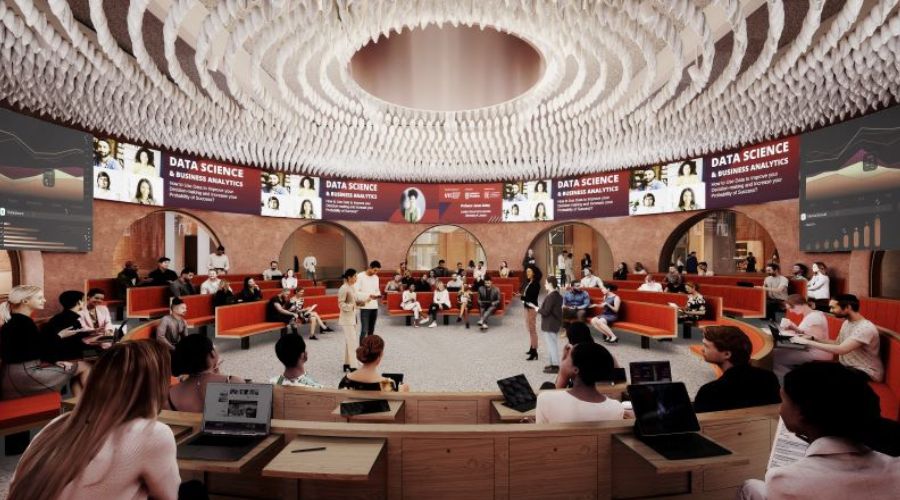
FabricSurveys’ retrofit project investigations were also undertaken on the retained steel frame, floor plates, window lintels, decorative stone façade and balconies where the new teaching facilities in the two-storey vertical extensions will be located.
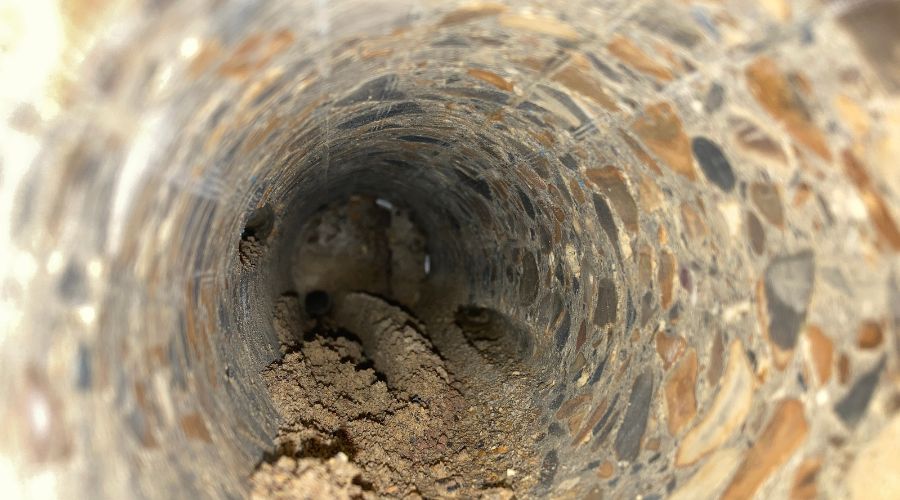
The progress at the Firoz Lalji Global Hub highlights the potential of sustainable retrofitting in preserving architectural heritage, while also achieving ambitious environmental standards.
I’m excited to see the completed building and am already looking forward to next year’s AJ Retrofit Live conference.
Browse our news page for updates on some of Soiltechnics’ own future projects, or get in touch with a member of our team today at enquiries@soiltechnics.net to learn more about the services we offer.
Dr Matthew Hooper
Director
It’s World Suicide Prevention Day today (10th September).
Why today is so significant…
Suicidal thoughts are unfortunately more common than people realise and it remains the biggest killer of men under 49 and women aged 20-34. It is a really tricky subject to navigate and discuss, so we at Soiltechnics would like to get involved with the theme this year of “Changing the Narrative on Suicide”, encouraging people to talk and have conversations to allow the stigma around it to change.
Suicide awareness training
So today, or indeed any time that suits you, I hope you will join me in watching the following suicide awareness training. The course is approximately 20 minutes long and will hopefully give you some skills and confidence to have a conversation with anyone about their mental health struggles, that could potentially be lifesaving.
Other tools available
There are lots of other tools available, too, including tools on Welcome to The Suicide Prevention Hub, which also signposts to other services such as the Samaritans and Bereavement support.
Please also feel free to share this.
Written by Sarah Drage, Managing Director.
Soiltechnics was proud to take part in the Franklins 50 Challenge, raising £1377.03 in support of Northampton Hope Centre, a local charity dedicated to providing essential services to vulnerable community members.
The charity fundraising challenge, put together by Franklins Solicitors, has spanned 3 months and involved a series of fundraising activities to turn an initial £50 pledge from Franklins, into as much as possible.
Northampton Hope Centre supports people struggling with homelessness and issues relating to hardship, including addiction, mental health and wellbeing.
By partnering with them, Soiltechnics aimed to not only raise funds but also heighten awareness about the critical issues faced by people in our community.
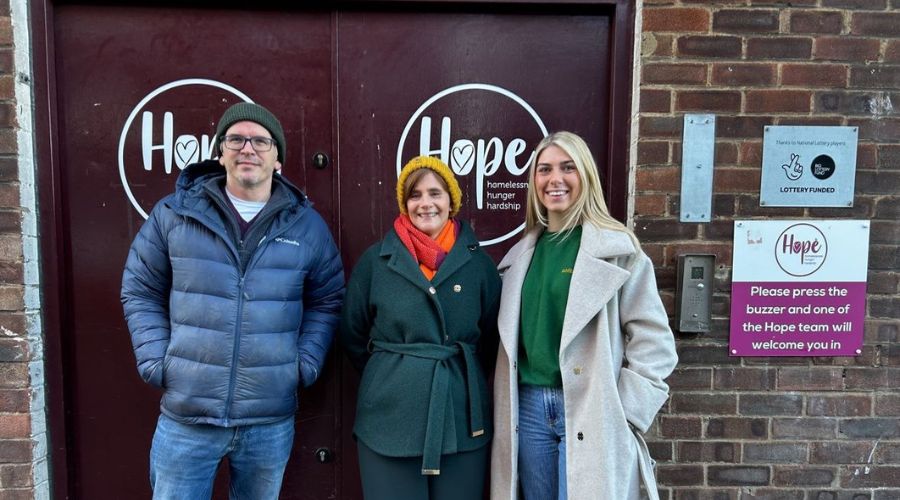
The Charity Fundraising Challenge
The Franklins 50 Challenge kicked off with a tuck shop, where we could purchase a variety of sweets, chocolate, fruit, crisps and even our lunch! The event was a resounding success, and we may even continue it longer term, in support of the local community.
Following the tuck shop, the team organised a charity football match, with a hugely successful win for Team Soiltechnics.
The largest fundraising activity over the course of the challenge was the sponsored walk, led by our Ground Investigations South Director, Ian Dunkley.
Ian took to the scenic trails of our local area and was joined at various stages along the way by the team, family and friends. He eventually walked over 30 miles and put the head torch to good use in the final stretch!
Other activities included a car boot sale, guess the number of jellybeans in a jar, loaded fries lunch, bespoke merchandise and plant sale.
We rounded the challenge off with a lunchtime make-your-own-pizza event, where we were joined by organisers from Franklins Solicitors – and the sunshine even made an unexpected, but welcome appearance.
Well done to all the team for your efforts and for the fun it brought us all!
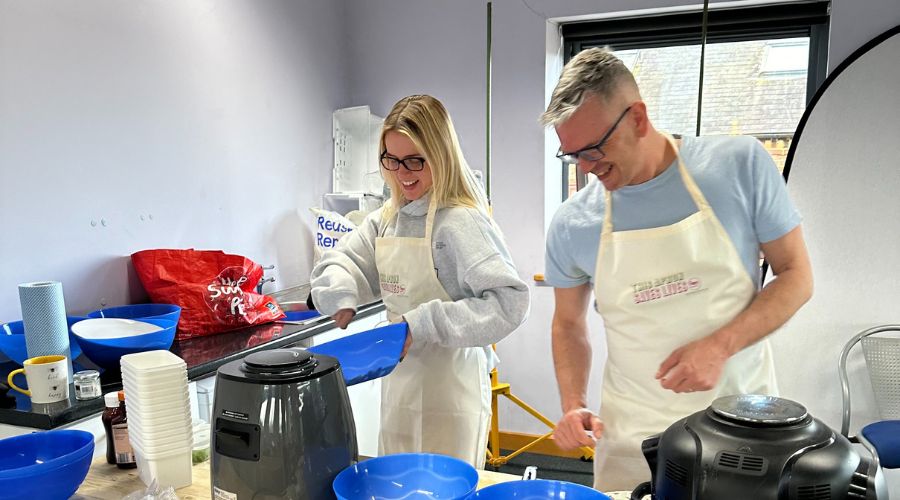
Community Impact
The money we have raised from the charity fundraising challenge will significantly impact Northampton Hope Centre’s ability to continue providing crucial services.
The funds will help those affected by homelessness, hunger, and hardship, helping to rebuild lives across the county.

Looking Ahead
Encouraged by the success of this campaign, Soiltechnics is already planning future fundraising initiatives. We are also excited to get involved in the Franklins 50 Challenge for years to come.
For more information about Northampton Hope Centre, visit their website to see how you can support their mission.
For more updates on Soiltechnics, visit our News page to see our latest projects and initiatives or get in touch with a member of our team today at enquiries@soiltechnics.net.
Adjacent to Kings Cross Station and in the vibrant Coal Drops Yard, construction has been in full swing since 2018, and it is exciting to see the UK Google HQ come to life. But the design, ground preparation and ground investigations commenced long before this.
The unique, 11-storey structure, with a triple-storey basement, designed by BIG and Heatherwick Studio comprises adaptable space, and required floors spanning the full width of the building, with internal multi-storey spaces.
The design included impressive triple-storey internal spaces, a column-free western elevation and a notable roof structure with trees. Accordingly, the loads were concentrated and significant.
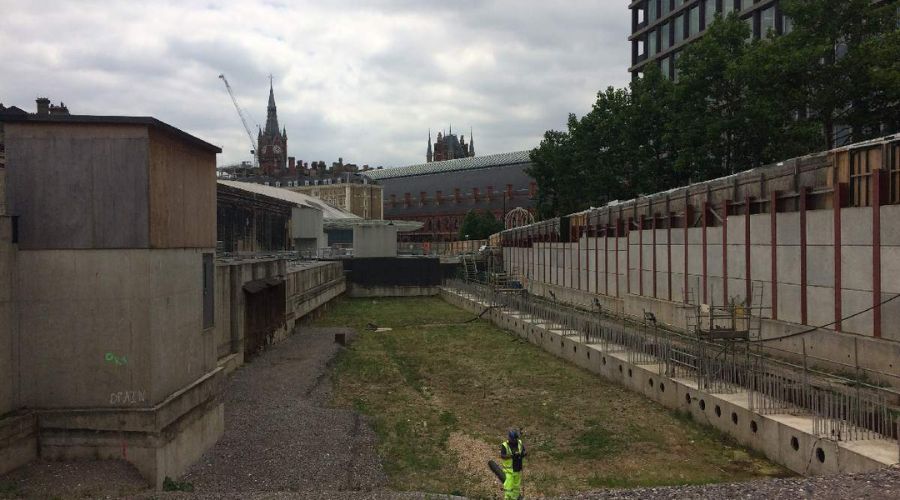
Challenges With Conventional Foundation Solutions
The conventional foundation solution would use piles terminating within the Thanet Sand Formation. However, this would require piles in excess of 40m long which would be timely and costly.
An alternative approach to investigation techniques and analysis was required, to ultimately limit construction risks.
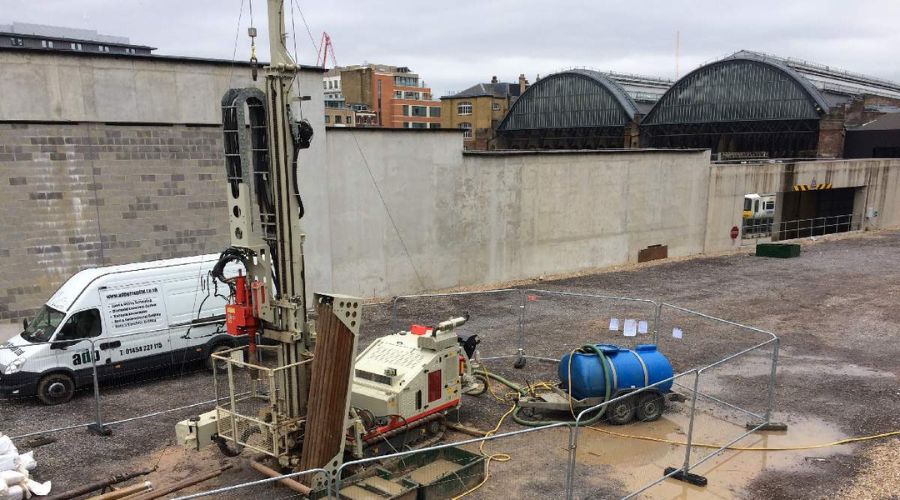
Pressuremeter Testing Approach
Working with structural engineers AKT II, along with the usual investigation data, the use of pressuremeter testing was advocated within the London Clay as it can provide high-quality data at small strain levels.
Despite the technique being around for decades it is used sparingly within the ground investigation industry. There is still a reliance on Standard Penetration Tests (SPTs) as they can provide multiple data points for a relatively low cost.
In contrast, the pressuremeter takes time and requires more borehole preparation, and there is a reluctance to place reliance on fewer data points for a seemingly higher cost.
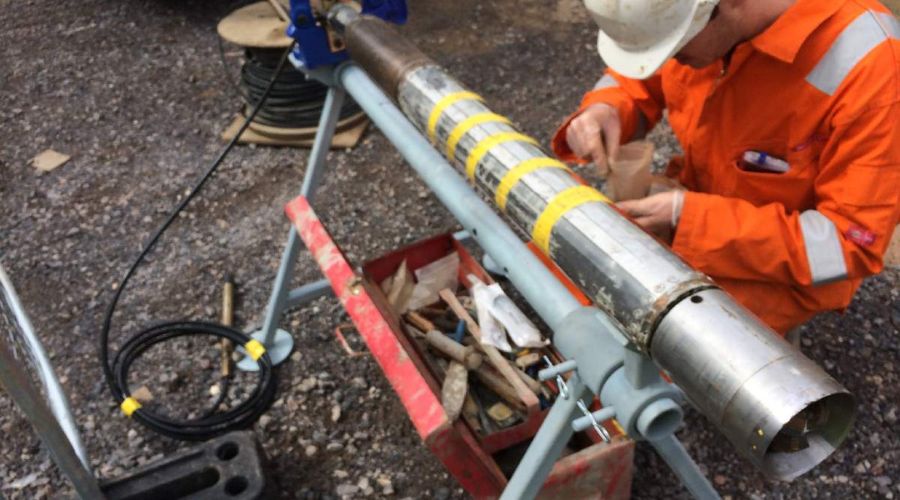
Pressuremeter Testing Benefits
The results from the pressuremeter testing indicated that the London Clay was significantly stronger than when estimated through SPTs and laboratory testing.
Accordingly, the foundation design could be leaner, achieving real cost savings and a reduction in concrete with associated carbon savings.
We continue to collaborate with our supply chain to provide innovative solutions. But sometimes it is simply a case of retrieving higher-quality data.
Of course, there is a cost and time implication but the overall benefit speaks volumes. Sometimes less really is more.
How We Can Help
At Soiltechnics, we can undertake a range of site-based testing.
Contact our team at +44(0) 1604 781877 or enquiries@soiltechnics.net today to find out how we can help and learn more about the services we provide.
